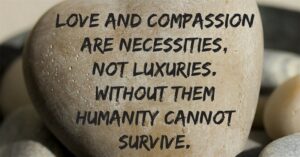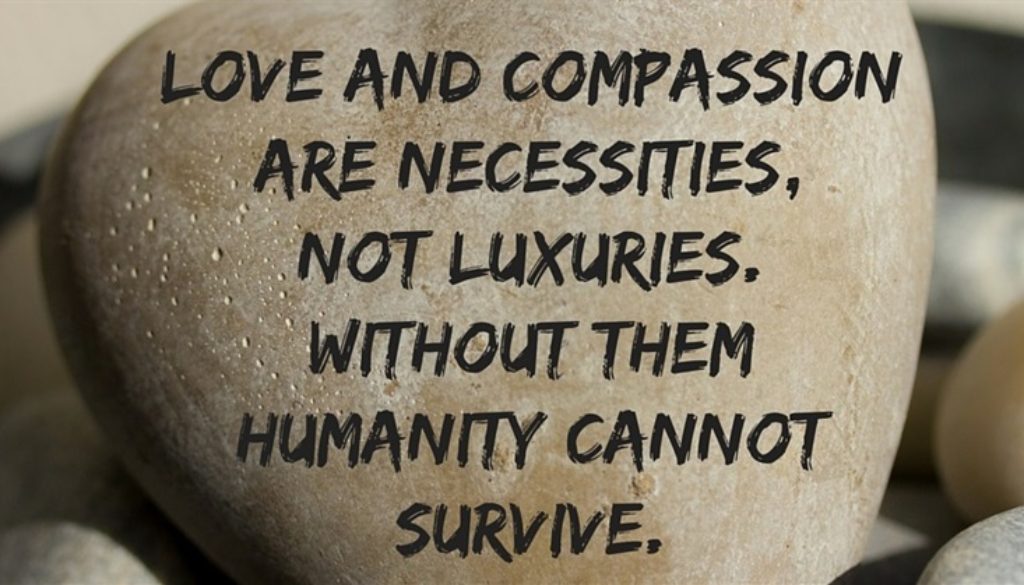Deuteronomy 24:5-25:4 Compassionate Laws

Moses reminds the people of many of the laws that command compassion for the fellow man. Many of them directly impact the poor, fatherless and widows. God helps those who cannot help themselves.
So many times I’ve heard people say, “God helps those who help themselves.” Moses is here to tell you that God especially helps those who cannot help themselves by commanding us to help them. God put laws in place to give a base of protection for the poor and oppressed.
The first command Moses shares is a happy one. It affords a newly married couple time to start their family. For one year the husband and wife are granted freedom from extra duties. They spend that year, their “honeymoon” year, in the company of one another. In most households during this time one of their major pursuits would be furthering their family. It was a year of happiness and expectation.
From this point on in our reading today Moses addresses provisions God put in place for those who were poor or oppressed. God loves ALL His children but some need more care than others do. And some are capable of helping Him give that extra care.
Several of these laws have to do with loans. Loans are not to be secured by items that would deprive the borrower of basic needs. A millstone used for making bread to feed the family. A cloak that provides the only warmth at night. Asking for surety of this kind is cruel and forbidden. It forces the person in need to choose between two equally bad options.
The third command Moses shares with the people brings my mind back to Joseph in the pit with his brothers standing around. By God’s law, if it had happened after He gave them His covenant, the people would be required to “purge the evil” from among them by killing the brothers. They did exactly what is stated here in verse 7. They stole their brother from their father and sold him. God used the original incident for their good but He intended that there be no repeats of that kind of behavior.
Many of the laws Moses shares here speak directly to providing dignity for one another, especially the poor. From the simplest thing of not going into a man’s house to collect his “pledge” to stopping at no more than 40 lashes, to leaving behind produce that can be collected by the poor, to paying wages on the day earned. These all give dignity to those on the other side of the equation. These actions elevate the poor from the position of beggar and provide them with dignity. They can harvest their own food. They can be trusted to honor their word. They can provide for the needs of their family by the works of their hands. And they are treated fairly for their actions.
One of the clearest laws of just treatment is when God commands that each person answer for their own sins. “Fathers shall not be put to death because of their children, nor shall children be put to death because of their fathers. Each one shall be put to death for his own sin” (verse 16). The one may carry the stigma of the other’s actions but each is responsible for their own actions.
I have a feeling that this law pertains to children who are of age. Children who are not old enough to understand the consequences of their actions and are still under their parent’s protection would probably result in the parent taking responsibility and the consequences for their behavior. If it was severe enough to warrant death though it may be handled differently. That is something I would have to take up with God.
The only command we haven’t touched on in some way is the one dealing with leprous diseases. God gave the Levites specific instructions on how to tell the difference between normal skin issues and leprous ones. Leprosy was a scary disease and was considered unclean by God. It could spread through the community of not strictly taken care of. Hiding the condition or skirting God’s laws concerning it could have dipterous implications. God sometimes used it as a method of punishment, as He did with Miriam. Following God’s laws brings restoration to both body and spirit.
Father God, it is interesting how You commanded compassion in Your laws. They make good sense and speak of You love for ALL of Your children. Would the people of Israel have showed compassion if You hadn’t commanded it? Would I show compassion if Jesus hadn’t modeled it? I pray I would. I will never truly know the answer to these last two questions because You DID command and model it.
I’m glad I live in a nation that cares about being compassionate. I have been the recipient of more than one of the programs put in place for those in need. Thank You for helping me during those times to find sources to meet my family’s needs. Thank You also for blessing me so I could rise above those places of desperate need. Thank You most that You have brought me to a place where I can help others who are in need. I want to give back a little of what You gave to me. The biggest piece I want to give is dignity. I can’t do everything for everyone but I can give little bits here and there without demanding a return or even acknowledgement and thanks. “But when you give to someone in need, don’t let your left hand know what your right hand is doing” (Matthew 6:3).



